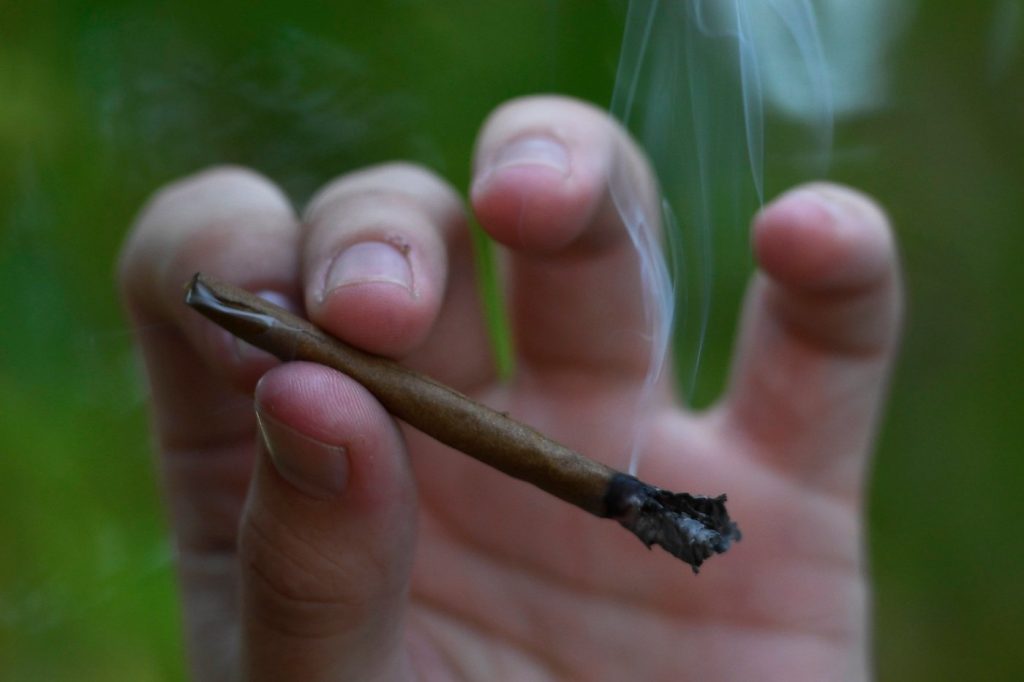Imagine shutting every door and window, yet an intrusive guest still sneaks into your home. That is how I describe secondhand smoke. Once inside, you can’t get rid of it. This situation gets worse during the colder months when people who smoke might do it indoors.
Secondhand smoke knows no boundaries, and it is dangerous, particularly for those with respiratory health issues. On Tuesday, the Oakland City Council will have the opportunity to improve the lives of multi-unit housing residents like me by upholding our right to breathe clean, smoke-free air.
I am optimistic that Oakland may soon join other East Bay cities in passing an ordinance prohibiting smoking in multi-unit housing and bar patios. But I’m also deeply concerned about a proposed exemption for cannabis smoking, an exception that would violate Proposition 64 — a voter initiative that prohibits smoking marijuana wherever smoking tobacco is prohibited. Such an exemption would compromise the ordinance’s enforcement and undercut its goal: to protect our health.
Secondhand marijuana smoke has many of the same carcinogens and toxic chemicals as secondhand tobacco smoke, along with THC, the active ingredient in cannabis. Exposure to THC can affect non-users, impairing thinking, memory and motor skills. Additionally, secondhand marijuana smoke has higher levels of fine particulate matter, which can cause cardiovascular disease and lung irritation and make respiratory infections and asthma attacks more likely.
In Oakland, 7.5% of children and teens have asthma. Among California children, those who are Black and Hispanic/Latino are more likely to suffer from severe asthma and have higher hospitalization rates than their White peers. In multi-unit housing, secondhand smoke seeps through light fixtures, wall electric outlets and doorways, posing a unique challenge for those trying to manage asthma.
I have a neighbor who smokes marijuana. They stopped smoking it after several of us, including someone with severe asthma, raised concerns about secondhand smoke and its health risks. But we cannot always rely on the kindness and understanding of our neighbors. We need the city of Oakland to step up and firmly defend our health and well-being.
According to a survey conducted from 2018-22 with Oakland residents living in multi-unit housing, 51% of residents reported being exposed to secondhand tobacco smoke, while 57% reported exposure to secondhand marijuana smoke.
There’s no safe level of exposure to secondhand smoke. No ventilation system can eliminate all health risks. Even outdoors, you can be exposed to high levels of secondhand smoke if someone is smoking nearby. Prohibiting smoking is the only way to fully protect us from secondhand smoke exposure.
Thanks to comprehensive smoke-free laws and other tobacco control policies, smoking rates in the United States are at historic low levels, with 11.5% of U.S. adults smoking in 2021. The smoking rate among California adults is even lower, reported at 9.7% in 2022. These policies also reduce tobacco use initiation, especially among youth, and encourage people who smoke to quit.
Related Articles
Becker: We must learn from history, reject Trump’s talk of mass deportation
Opinion: California needs more than medical schools to solve doctor shortage
Opinion: Venezuela’s turn away from democracy impacts U.S. migration
Opinion: It’s past time to induct Jim Plunkett into the Pro Football Hall of Fame
Opinion: The high stakes of skipping your yearly COVID-19 shot
For decades, the tobacco industry has targeted people of color, limited-income communities, LGBTQ+ people and youth, causing a disproportionate use of tobacco among these populations. Comprehensive smoke-free laws are essential to reducing exposure to secondhand smoke, tobacco use and the burden caused by smoking-related diseases, such as cancer, and ensuring all our communities are healthy and can reach their utmost potential.
I urge our city councilmembers to pass a comprehensive smoke-free ordinance that protects us from the health hazards of secondhand smoke, including marijuana smoke.
David Stempel is a long-time Oakland resident, an American Cancer Society Cancer Action Network volunteer and a former American Cancer Society director of marketing communications. He has been a licensed marriage and family therapist in private practice since 2000.


